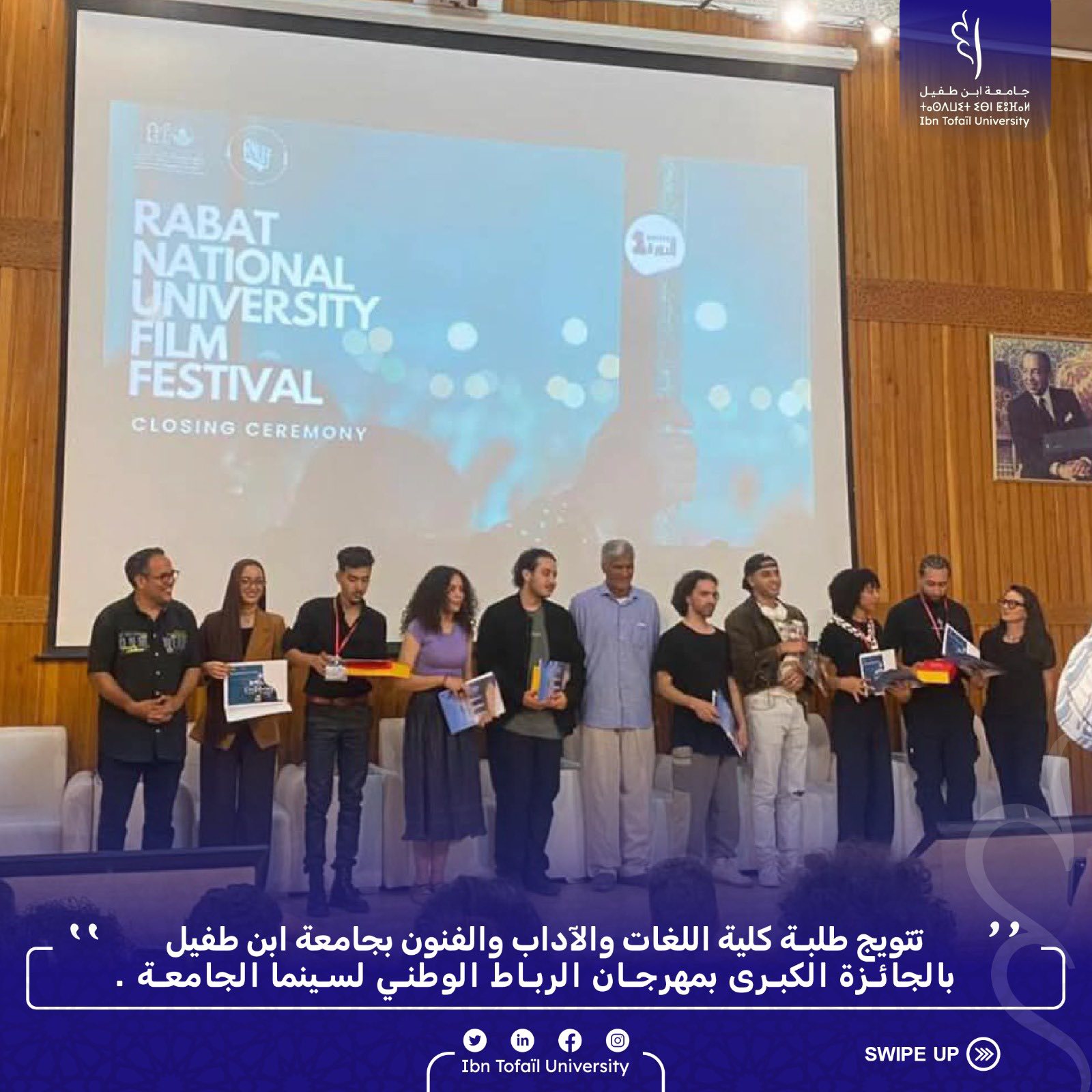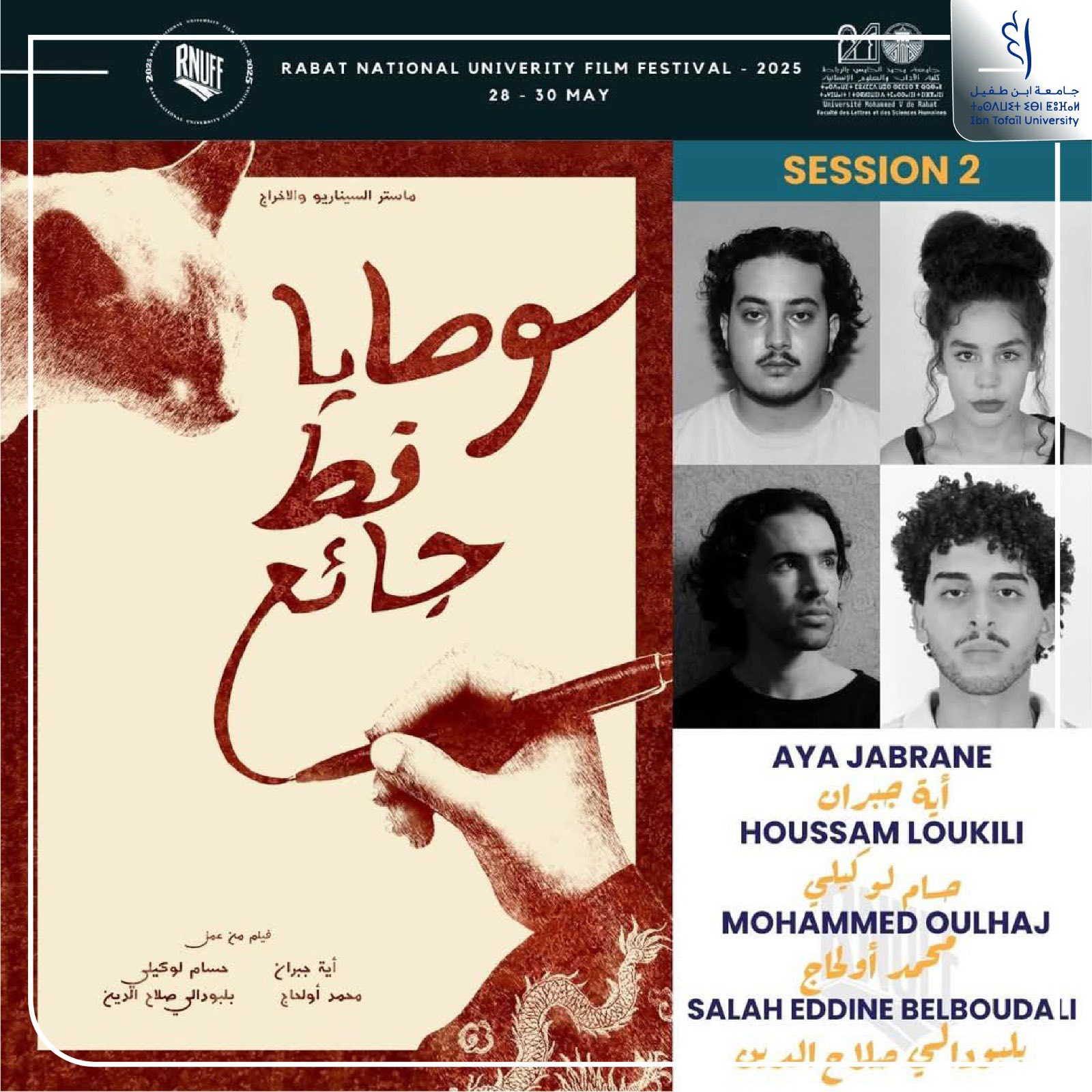Event : May 28–30, 2025
Partner : Ibn Tofail University – Mohammed V University.
In an age where storytelling shapes consciousness and frames collective memory, cinema has emerged not merely as a form of entertainment but as a cultural lens and a catalyst for change. This transformative power of the visual narrative took center stage from May 28 to 30, 2025, at the inaugural edition of the Rabat National University Film Festival, hosted at the historic Sherif Idrissi Auditorium of Mohammed V University’s Faculty of Arts and Humanities. The festival marked a milestone in national academic and artistic engagement, bringing together student filmmakers from across Morocco to celebrate the role of cinema in education and identity formation.


Among the most remarkable moments of the festival was the outstanding achievement of students from the Faculty of Languages, Arts and Humanities at Ibn Tofail University, who claimed the Grand Prize alongside other major awards, asserting their place at the forefront of Morocco’s new cinematic wave.
The Grand Prize was awarded to “The Last Wishes of a Hungry Cat”, a compelling short film directed collaboratively by Houssam Loukili, Mohamed Oulhaj, and Salah Eddine Balboudali, three students from the Master’s program in Scenario and Directing at the university’s Center of Communication and Media Studies. Their work, rich in symbolism and societal critique, is an artistic interrogation of marginality, survival, and silent resistance.
Adding to this wave of accolades, Nabila Addou Jadid, a fellow student in the same Master’s program, earned Best Directing for her animated film “Aouina Laqiq”, a poetic reflection on memory and place. She shared this honor with Souhail El Yoqadi, creator of “The Card Game”, another vivid contribution to the competition.
The festival jury also awarded a Special Mention to Hiba El Watiq, an undergraduate in the Bachelor of Excellence in Creative Writing, recognizing the depth of narrative and originality in her submission. Several other entries from students enrolled in the Bachelor of Excellence in Cinema and Creative Writing were also screened, including the strikingly immersive “Zamakan’s Shadow” by Karim Tajouaout, a film praised for its sophisticated writing and directorial vision that exceeded the expectations of seasoned professionals.
These awards reflect more than individual brilliance; they reveal a pedagogical ecosystem that is consciously cultivating not only technical skills but also critical thinking, artistic responsibility, and the courage to narrate untold stories. The Center of Communication and Media at Ibn Tofail University is fast becoming a crucible for cinematic innovation and academic-artistic synergy, nurturing students who are as intellectually rigorous as they are creatively daring.
Beyond the trophies and recognition, the Rabat National University Film Festival underscores a larger truth: Art is no longer peripheral to the academic experience; it is central. It opens new intellectual pathways, provides a platform for suppressed voices, and transforms abstract ideas into tangible experiences. In this sense, cinema becomes a tool of academic inquiry, cultural preservation, and civic engagement.
By empowering students to write, direct, and produce works that engage with Moroccan identity, history, and modernity, institutions like Ibn Tofail University are redefining the contours of higher education. They are proving that education is not just about absorbing knowledge; it is about creating, questioning, and contributing meaningfully to the world around us.
